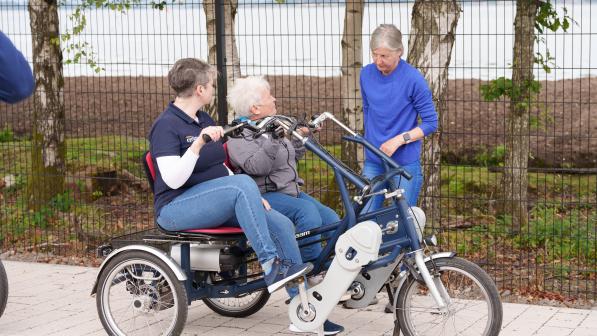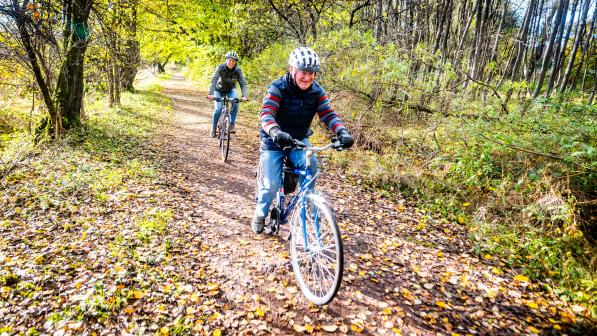Transforming staff travel at NHS Greater Glasgow and Clyde through the Cycle Access Fund

NHS Greater Glasgow and Clyde (NHSGGC) is the largest NHS organisation in Scotland, serving 1.3 million people across Glasgow and the West. With over 41,000 staff and 23 hospitals, the organisation faces significant challenges related to staff travel.
A recent internal survey revealed that 59% of staff commute by private car, causing congestion, parking issues, and environmental impacts.
Active travel is a growing priority for NHSGGC. While only 6% of staff currently cycle to work, these figures vary widely, with 14% cycling at the West Glasgow Ambulatory Care Centre compared to just 2.4% at Inverclyde.
To address these disparities and reduce single-occupant car journeys, the NHSGGC Active Travel Team works to promote sustainable travel options.
Addressing travel barriers
Active Travel Team staff frequently travel to nine sites within a seven-mile radius to deliver Dr Bike sessions, maintenance training and active travel information events.
Previously, they relied on cars to transport equipment and staff, leading to parking challenges and inefficiencies. Transporting bulky equipment by hand from parking spaces to event locations added further strain.

Revolutionising staff transport
With support from Cycling UK’s Cycle Access Fund, NHSGGC acquired an e-cargo bike to transform how the Active Travel Team operates.
The e-cargo bike allows the team to reach sites directly, eliminating parking issues and reducing the environmental footprint of their journeys.
Customised to carry tools, materials and even work stands, the e-cargo bike is an efficient and sustainable alternative to cars.
Driving positive change
Using the e-cargo bike, the Active Travel Team now delivers three weekly Dr Bike sessions across various sites, repairing up to eight bikes per session.
By bringing maintenance services directly to NHS staff, the team ensures that vital healthcare workers can keep their bikes roadworthy without needing to visit a shop. This service is particularly valuable for shift workers, who often struggle to find time for bike repairs.
At Glasgow Royal Infirmary, Claudio Pia of the Active Travel Team highlighted the transformative impact of the e-cargo bike:
Getting the e-cargo bike has been a game changer for us. We can cycle right into sites with everything we need for a session on the bike—even the work stands. People are amazed at how much the bike can carry, and the pedal assist makes getting between sites really easy.
We are also setting a good example by showing that a bike is better than a car for short journeys, and a cargo bike can easily transport materials around the city in a cleaner and greener way.

Nurse Dominic Rimmer, who uses his bike daily for commuting, also praised the initiative:
It’s great to be able to get my bike checked over while I’m at work. I work shifts and use it every day, so it’s hard to get to the bike shop. Getting my bike checked and repaired for free is brilliant, and I know my bike is safe to ride with winter coming in
The introduction of the e-cargo bike, supported by the Cycle Access Fund, has significantly enhanced NHSGGC’s ability to promote active travel among staff.
By offering a practical, sustainable solution to transport and maintenance challenges, the initiative is helping reduce car dependency, improve cycling accessibility, and set an example for greener, healthier commuting practices within the NHS.



